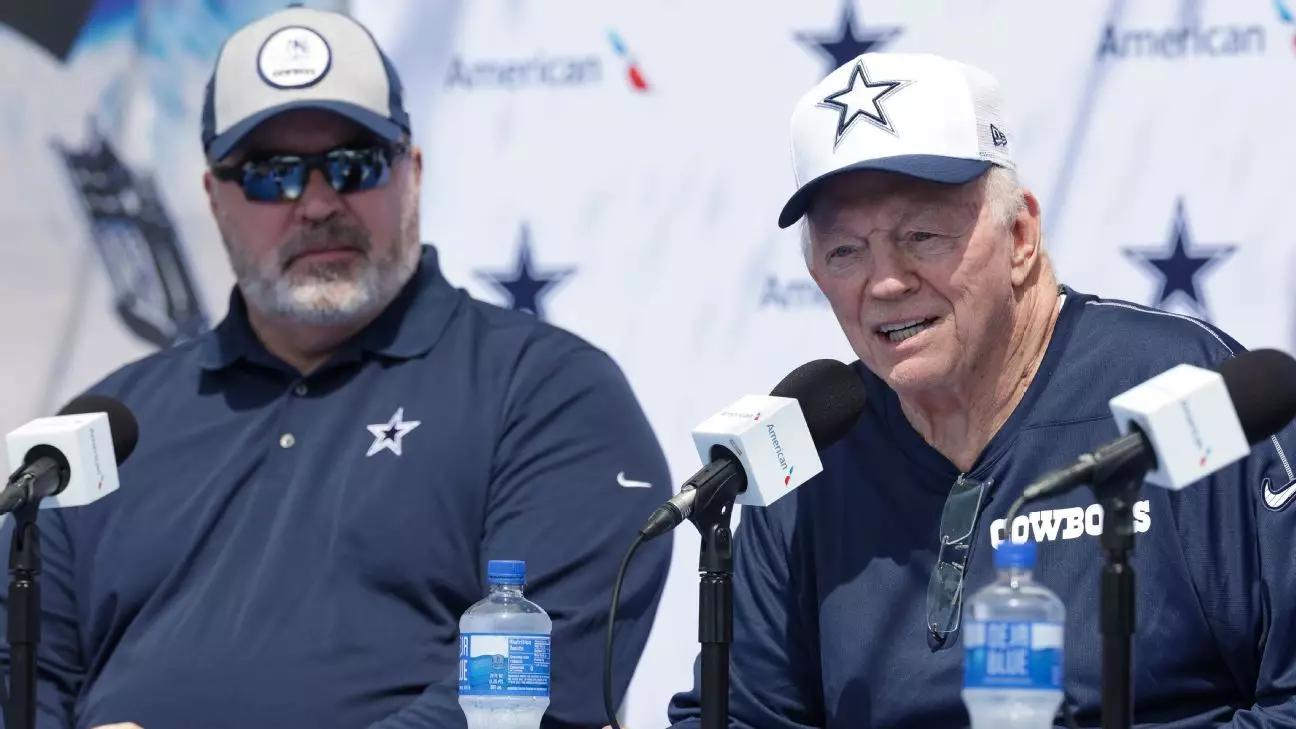The Dallas Cowboys are a team with rich history and a dedicated fanbase, but their future is currently under scrutiny as tensions rise regarding the current coaching situation. Owner Jerry Jones and head coach Mike McCarthy are facing a pivotal moment in the team’s narrative, particularly as they navigate the complex dynamics of team performance, management expectations, and player health. While the Cowboys have demonstrated resilience by winning four of their last five games, the overarching question remains: what does the future hold for McCarthy and his coaching staff?
In sports, the phrase “rebuild” is used often, but it rarely encapsulates the urgency required in the NFL. For the Dallas Cowboys, elation from recent victories starkly contrasts the reality that they have already been eliminated from playoff contention. With a record of 7-8, the Cowboys are in a transitional phase that requires pointed evaluations of all aspects of the organization. Jones has indicated that discussions surrounding the team’s future extend beyond mere player evaluations; they delve into the strategic direction of the coaching staff. The performance seen over the last few weeks, especially amidst a plethora of injuries affecting key players like Dak Prescott and DeMarcus Lawrence, brings a silver lining, suggesting potential growth and adaptability within the squad.
Jones articulated a vision centered on a robust focus on the future — a future that could mean immediate success or long-term development. The absence of certain players significantly impacts the Cowboys’ ability to compete effectively. However, this also presents opportunities for younger talent to garner experience, which Jones sees as a crucial element for the team’s progress. Interestingly, even with McCarthy’s commendable performance lately, a shadow remains over his position due to the uncertain accountability expectations set forth by an organization with championship aspirations.
Amidst discussions that certify the positivity around recent performances, there remains an air of uncertainty regarding McCarthy’s future with the Cowboys. As reflected in his contract situation, the head coach is in a delicate position—holding a commendable record while simultaneously facing criticism over playoff shortcomings. McCarthy’s journey through the NFL has certainly carved out a respectable status, achieving 173 regular-season victories, yet failure to advance beyond the divisional rounds raises valid questions about his strategic capabilities. His recent ascent to surpassing recognized coaching figures only serves, in some views, as a testament to quantity over quality when considering postseason success.
McCarthy’s own comments about the timing of discussions regarding his future shed light on the complexities of his role. Emphasizing the importance of focusing on what is immediately in front of him—his coaching staff and the players—indicates a level of self-awareness about the volatile nature of coaching in professional football. McCarthy’s assurances that he prioritizes his staff reflect a commitment to fostering a positive environment, yet it can also be interpreted as a defensive yet hopeful posture that may imply he is prepared for potential changes.
While the Dallas Cowboys’ front office navigates these critical conversations, the significance of crafting a clear, strategic direction cannot be overstated. With the current coaching staff operating under a cloud of uncertainty, the question becomes whether continuity or change will serve as the best pathway forward. The Cowboys have a mix of experienced veterans and emerging players, fueling optimism about their long-term potential. However, the management must align their vision with the reality of performance and results.
The conversation about McCarthy and his staff will likely escalate as the season approaches its conclusion, and with each game presenting both a challenge and an opportunity, it is the combination of strong leadership and effective communication that will ultimately determine the Cowboys’ trajectory. As Jones reiterated the importance of discussions around the future, it became evident that while the Cowboys reflect on the past, the focus must remain steadfastly set on proactive decision-making that prepares the team for the challenges and exhilarations that await in the seasons to come.

Leave a Reply